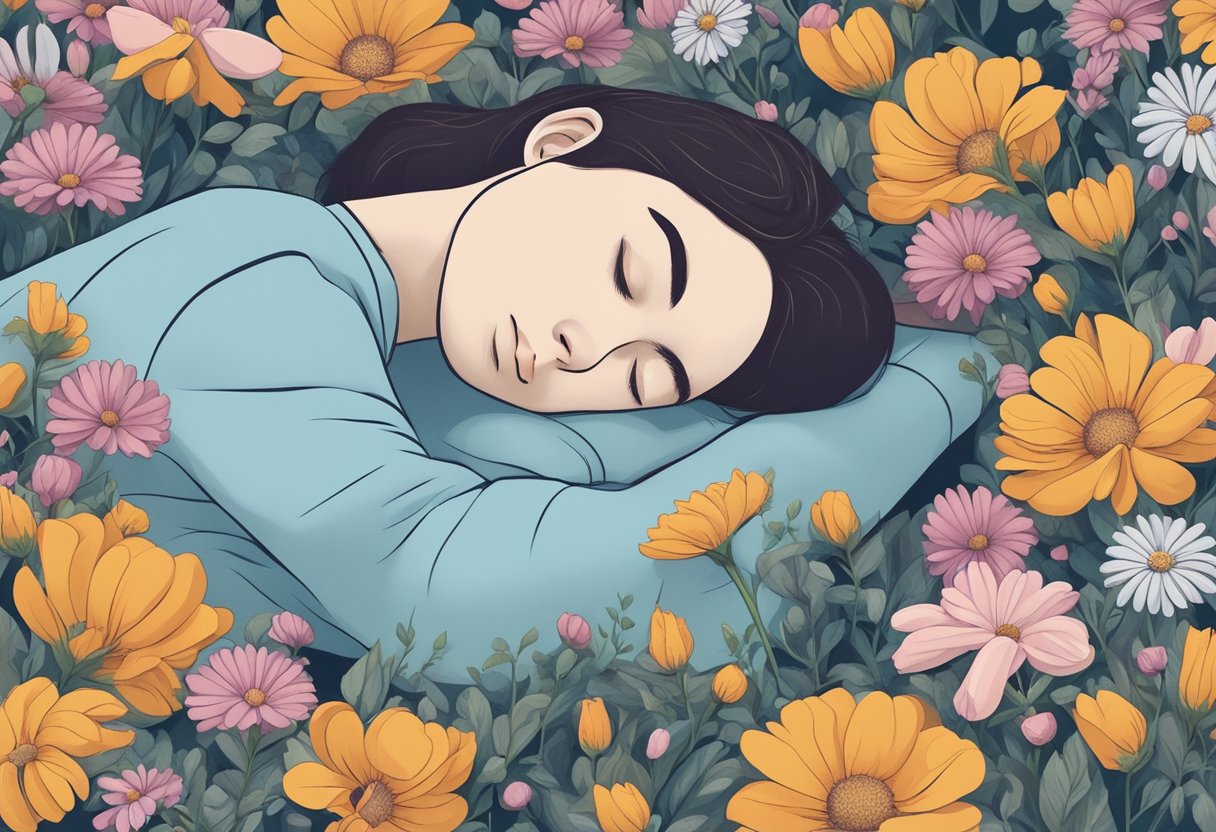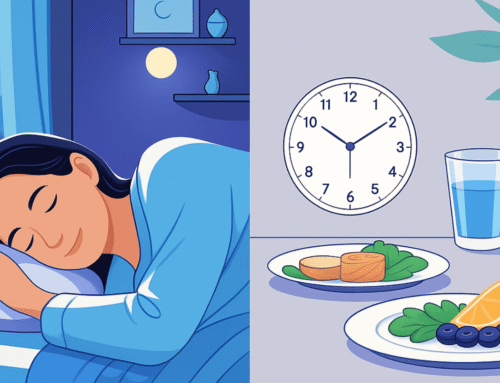Allergies aren’t just an annoying seasonal problem—they can seriously mess with your sleep. If you suffer from allergies, you’ve probably dealt with stuffy noses and congestion that make it tough to fall asleep or stay asleep through the night. This lack of quality sleep can leave you feeling drained during the day and contribute to other health issues. That’s why understanding how allergies affect your sleep is key to improving your overall health and well-being.
When allergies disrupt sleep, it can feel like you’re stuck in a cycle of constant exhaustion. What’s worse is that many people unknowingly make their symptoms worse at night without realizing it. That’s why it’s important to identify the triggers and find effective ways to manage them. When you learn how to control your allergy symptoms, you’ll likely notice a big improvement in how well you sleep—and how good you feel during the day.
The good news is that with some smart strategies and the right treatments, you can start getting the restful sleep you need. By clearing up common myths and focusing on practical solutions, you can take real steps toward better sleep and overall health. Simple but effective treatments and tips can make a huge difference in how well you sleep.
Key Takeaways
- Allergies can cause sleep disturbances that lead to daytime tiredness.
- Managing allergies at night is essential for better sleep.
- Effective treatments and practical tips can greatly improve sleep quality.
- Choosing the right mattress can make a big difference in managing allergy symptoms and improving sleep quality.

Allergies happen when your immune system overreacts to certain substances, making you feel uncomfortable and often disrupting your sleep. When these reactions hit at night, they can make it harder to get the rest you need.
Causes of Allergic Reactions
Allergic reactions are triggered by substances known as allergens. Some of the most common culprits include:
- Pollen: Seasonal allergies are often caused by pollen from trees, grass, or weeds.
- Dust Mites: These tiny creatures are found in bedding, carpets, and upholstered furniture, making them a major source of indoor allergies.
- Pet Dander: Proteins from pet skin flakes, saliva, or urine can trigger allergic reactions in sensitive individuals.
- Mold: Mold spores that grow in damp areas, like bathrooms or basements, can also provoke allergies.
When your body comes into contact with these allergens, it may mistakenly see them as harmful invaders. This triggers the release of histamines, which cause allergy symptoms. That’s why many people find themselves waking up sneezing or with a runny nose during allergy season or after spending time with pets.
Symptoms of Allergies
Allergy symptoms can show up in different ways, but the most common include:
- Sneezing: Your body’s natural way of trying to get rid of allergens.
- Runny or Stuffy Nose: Nasal congestion from allergies can make it hard to breathe and get comfortable.
- Itchy Eyes: Allergens can irritate your eyes, causing itchiness and discomfort.
- Coughing: Post-nasal drip from congestion can lead to a nighttime cough.
Waking up with allergy symptoms can seriously interfere with sleep quality. Many people report feeling not just congested, but also exhausted during the day because they didn’t get enough rest. Understanding these symptoms is the first step toward finding relief, whether that means taking antihistamines or reducing exposure to allergens.
Allergies can really take a toll on your sleep, making it hard to fall asleep or stay asleep through the night. Understanding how allergies and sleep are connected can help you find ways to improve your rest and feel better overall.
Effects of Allergies on Sleep Quality
Allergies can cause stuffy noses, sneezing, and itching — all of which make it tough to get comfortable at night. When your airways are blocked, breathing becomes more difficult, which can throw off your sleep cycles and leave you feeling restless.
Common triggers like dust mites and pet dander are often to blame for these symptoms. When you’re constantly exposed to allergens, your sleep quality can spiral downward. Poor sleep leads to more fatigue, which can make allergy symptoms feel even worse.
Allergy-related sleep issues can even lead to more serious problems like sleep apnea — a condition where breathing repeatedly stops and starts during sleep. People with sleep apnea often struggle with daytime sleepiness because their sleep is constantly being interrupted.
Can Allergies Cause Insomnia?
Yes, allergies can contribute to insomnia. When allergens cause discomfort or make it hard to breathe, falling asleep and staying asleep becomes a real challenge. Allergic rhinitis (inflammation of the nasal passages due to allergies) is commonly linked to insomnia because it causes significant nasal congestion.
For people with allergies, getting a good night’s sleep can feel nearly impossible. Constant exposure to allergens while sleeping can keep you awake and lead to chronic insomnia.
What makes it worse is that lack of sleep can weaken your immune system, making it harder for your body to handle allergens. This creates a frustrating cycle where insomnia and allergy symptoms feed off each other. Breaking this cycle is key to improving both your sleep and overall health.
Many people struggle with allergies that make it hard to get a good night’s sleep. Tackling allergens in the bedroom and using effective relief strategies can make a big difference in improving sleep quality.
Reducing Allergens in the Bedroom
Keeping your bedroom clean and free from allergens is key to reducing nighttime allergy symptoms. Here’s how you can create a healthier sleep environment:
- Keep Windows Closed: Pollen from outside can easily drift in through open windows. Keeping them shut helps reduce exposure to outdoor allergens.
- Use Air Purifiers: Air purifiers with HEPA filters can trap dust, pet dander, and other allergens. Running one in your bedroom can noticeably improve air quality.
- Wash Bedding Regularly: Washing sheets and pillowcases in hot water once a week helps remove dust mites and other allergens that can accumulate in your bedding.
- Declutter and Dust: Reducing clutter in your bedroom limits places where dust can collect. Regularly dusting surfaces also helps keep allergens at bay.
- Pet Management: If you have pets, it’s best to keep them out of the bedroom. This minimizes fur and dander buildup, which can trigger allergy symptoms.
Nighttime Allergy Relief Strategies
In addition to keeping your sleep space clean, some simple relief strategies can help reduce allergy symptoms at night:
- Antihistamines: Taking an antihistamine before bed can help with sneezing and congestion. Some antihistamines are designed to work overnight, providing relief while you sleep.
- Nasal Rinses: A quick saline rinse before bed can clear allergens from your nasal passages, making it easier to breathe while you sleep.
- Showering Before Bed: Taking a warm shower before bed washes off pollen and other allergens from your skin and hair, helping you start the night feeling fresh and clean.
- Humidity Control: Keeping the humidity in your bedroom low can prevent mold growth, which can worsen allergies. A dehumidifier can help maintain an ideal humidity level.
By following these strategies, you can create a more comfortable sleep environment and reduce the impact of allergies on your rest. Better sleep means feeling more refreshed and energized during the day.

Allergies can cause uncomfortable symptoms that make it hard to get a good night’s sleep. Finding the right treatments can go a long way in managing these symptoms and improving sleep quality.
Medications and Natural Remedies
Allergy medications are a popular way to get relief. Antihistamines work by blocking histamine, the chemical that triggers sneezing and itching. They’re available as pills or nasal sprays, making them easy to use.
Here are some common options:
- Antihistamines: Great for relieving sneezing and itchy eyes. Common examples include loratadine and cetirizine.
- Decongestants: These help clear up stuffy noses, making it easier to breathe. Pseudoephedrine is a popular choice.
- Nasal Corticosteroids: These sprays reduce inflammation in the nasal passages, helping to ease congestion.
Natural remedies can also be helpful. Saline nasal rinses can flush out allergens from the nose, making it easier to breathe. Switching to hypoallergenic bedding can reduce exposure to dust mites, which are a common trigger for nighttime allergy symptoms.
Long-Term Allergy Management
For long-term relief, a combination of avoiding allergens and professional treatments can make a big difference. For persistent allergies, doctors may recommend allergen immunotherapy (allergy shots). This involves regular injections to help your body build a tolerance to specific allergens over time.
Other helpful strategies include:
- Monitoring pollen counts: Staying indoors when pollen levels are high can help prevent flare-ups.
- Regular cleaning: Keeping your home free of dust and pet dander can reduce allergen exposure.
- Consistent medication routine: Taking your allergy medication as prescribed can help control symptoms and improve sleep quality.
If you often wake up sneezing or feeling congested, these strategies can help you feel more comfortable and improve your overall well-being. Better sleep means better health and more energy during the day.
Allergies can have a major impact on both sleep quality and overall health. This connection is especially clear in conditions like allergic rhinitis and sleep apnea, which can seriously disrupt normal sleep patterns.
Impact of Allergic Rhinitis on Sleep
Allergic rhinitis is a common issue that causes nasal congestion, sneezing, and itchy eyes — all of which make it hard to sleep comfortably. When your nose is stuffed up, it’s difficult to breathe properly, which often leads to poor sleep quality.
Blocked airways can make it harder to fall and stay asleep, leaving you feeling restless and tired the next day. This kind of sleep disruption can lead to daytime fatigue and trouble concentrating. Research shows that people with allergic rhinitis tend to experience worse sleep quality than those without allergies. That’s why finding ways to relieve nasal symptoms is key to improving overall sleep.
Sleep Apnea and Allergies
Sleep apnea is another sleep disorder that’s common among people with allergies. It causes repeated pauses in breathing during sleep, often leading to snoring and gasping for air. Allergies can make sleep apnea worse by causing inflammation and congestion in the airways.
When your airways are blocked, the risk of sleep apnea episodes increases. People dealing with both allergies and sleep apnea often wake up feeling unrefreshed because their sleep is constantly interrupted. This combination can also lead to more serious health problems, like high blood pressure and other cardiovascular issues. That’s why managing allergy symptoms is crucial for improving sleep apnea and getting more restful sleep.

Getting a good night’s sleep can be tough when you have allergies. But creating the right sleep environment and choosing the right bedding can make a big difference in improving sleep quality.
Bedroom Environment Optimization
Your bedroom should be a peaceful, allergen-free zone. Start by keeping pets out of the bedroom to reduce exposure to pet dander and hair, which are common allergy triggers. Using an air purifier with a high-quality HEPA filter can help remove airborne allergens like dust mites and pollen, improving the air quality in your room.
Controlling humidity levels is also important. Keeping the humidity between 30% and 50% can prevent mold growth, which is another common source of allergies.
Make a habit of regularly cleaning surfaces and vacuuming the floors to keep dust from building up. A clean, well-maintained bedroom can go a long way toward helping you sleep better. By keeping your sleep space clean and minimizing allergens, you’ll set yourself up for more restful nights.
Allergy-Friendly Bedding
The type of bedding you use can have a big impact on how well you sleep with allergies. Investing in allergen-proof covers for your pillows and mattress is a smart move. These covers create a barrier that keeps dust mites and other allergens from settling in. Wash your sheets and pillowcases in hot water at least once a week. Hot water helps eliminate dust mites and other irritants that may have built up in your bedding.
Switching to synthetic or hypoallergenic pillows is another helpful step. These materials tend to resist allergens better than natural materials like down. Consider using a duvet or comforter that’s easy to wash regularly to keep allergens under control.
With these simple adjustments, dealing with a stuffy nose or nighttime allergy symptoms can become much more manageable, helping you sleep more comfortably.

Your mattress plays a major role in managing allergies and improving sleep quality. Some mattresses are designed with hypoallergenic materials that naturally resist dust mites and other allergens, helping you breathe easier at night.
The Helix Sunset Luxe is an excellent option for allergy sufferers. It’s designed with a breathable, hypoallergenic cover that prevents allergens from building up. The mattress also includes a cooling layer that helps regulate body temperature, which can reduce night sweats—a common issue for people with allergies.
Memory foam and hybrid mattresses like the Helix Sunset Luxe are particularly beneficial for allergies because they’re resistant to mold, dust mites, and bacteria. The supportive structure of the Helix Sunset Luxe helps keep your spine aligned, which can further enhance sleep quality.
Investing in a high-quality, hypoallergenic mattress can significantly reduce allergy symptoms and create a more comfortable sleep environment. A good mattress, combined with the right bedding and bedroom environment, can make a noticeable difference in how well you sleep.








